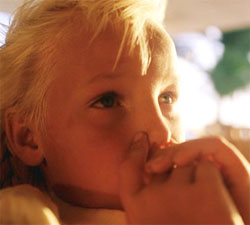Hospital starts programme on behaviour problems of children
 New Delhi, Nov 24 - Alarmed by rising incidents of aggression and violence among adolescents, a hospital here has started a life skills training programme for students in various schools in the capital to help them manage behavioural problems.
New Delhi, Nov 24 - Alarmed by rising incidents of aggression and violence among adolescents, a hospital here has started a life skills training programme for students in various schools in the capital to help them manage behavioural problems.
The "pro social peer moderator programme" launched by the department of mental health and behavioural sciences, Max Healthcare, is based on social learning theory whereby students are trained by their own peers to tackle risk taking behaviours, aggression and violence, substance abuse and delinquency.
According to doctors, factors like home dynamics, media, peer pressure and school environment influence children. Observation and research across cultures show that along with helping in the growth of an individual, some of these factors also lead to an upsurge of behavioural problems and risk-taking behaviour amongst youngsters.
In recent years, there has been growing concern in schools across India and worldwide about the behavioural problems of school age children and the consequences on their lives and the well- being of society at large.
"Life skills programmes have been identified as one of the key areas that can bring about a long lasting change in educational systems and enhance personality development of the children as they grow up in school, thus fostering positive growth and development and preventing the occurrence of mental disorders and social problems," psychiatrist Samir Parikh, who is conducting the programme, told IANS.
Parikh's team has conducted training sessions in a number of schools including St. Mark's in west Delhi, Vasant Valley in south Delhi, St. Columba's School in central Delhi and is planning to start them in government-run schools.
The first workshop was conducted last month and they have received a positive feedback from schools and parents. The students are trained on issues like aggression management, exams and study skills, risk behaviour management and media literacy.
"The training empowers them with skills to resist the negative influence of these factors. We make them role models for their schools and they in turn educate the students of their own school," said Parikh.
Under the programme, three students and a moderator teacher or counsellor from each school is trained over a period of two days to equip them with skills that they can use to disseminate knowledge and strategies to other children.
Parikh said the primary emphasis is on learning through observation -- students are trained to help other children in learning more adaptive forms of behaviour.
"The students get an in-depth understanding about the concept and related issues, for the specified session. They learn appropriate skills to cope and handle the behavioural problems and they are trained to conduct sessions in the school with other students to impart education and spread awareness," Parikh said.
Training sessions are conducted using power point presentations, posters, role plays, modelling and discussions. (IANS)